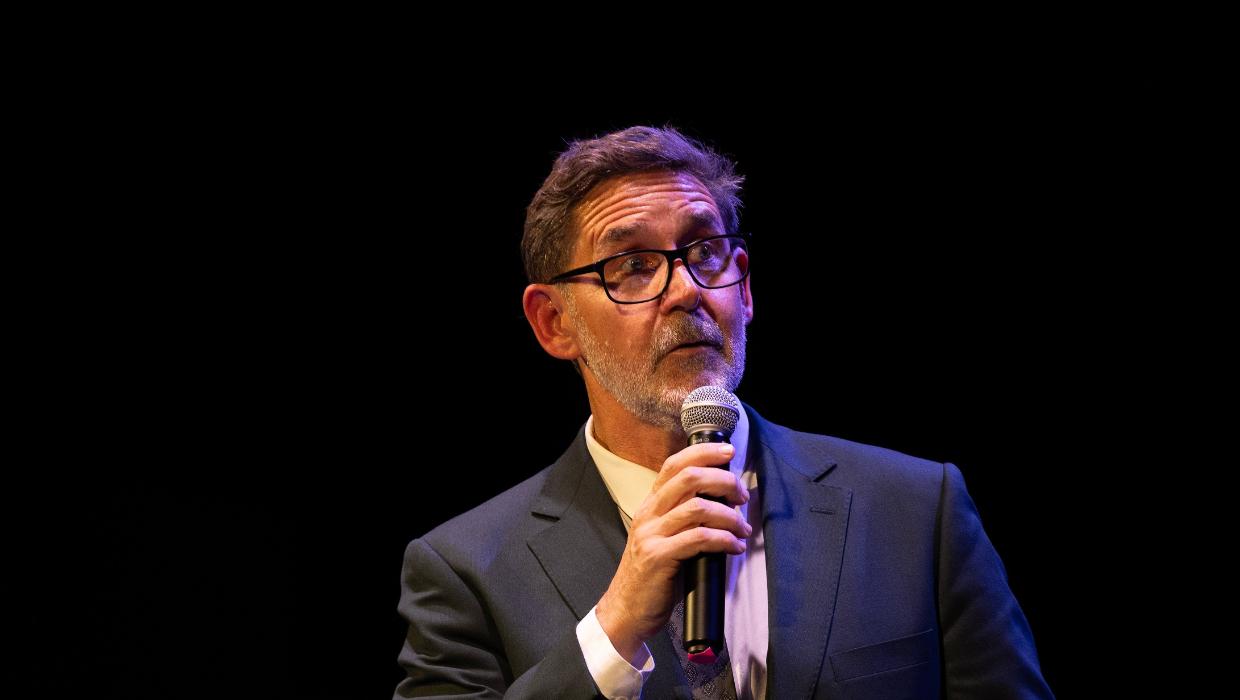Politics
New Plymouth Mayoral Candidates Divided Over Gaza Investment Policy

As discussions surrounding a potential peace deal in Gaza intensify, candidates for the New Plymouth mayoral election are at odds over the district’s investments in Israeli settlements deemed illegal under international law. The New Plymouth District Council holds shares in several companies linked to these settlements, including two of Israel’s top three banks.
The council does not directly manage these investments. Instead, the Perpetual Investment Fund (PIF) is overseen by US financial advisor Mercer, which operates a multi-billion-dollar passive fund. This fund utilizes algorithms to select and purchase stocks. Through Mercer, New Plymouth District Council (NPDC) owns small stakes in eight companies listed by the United Nations as contributing to the expansion of Israeli settlements in Palestinian-occupied territories. These include three banks that provide discounted mortgages to settlers and the security division of Motorola, along with travel firms such as Expedia, Airbnb, and Booking.com, as well as the French multinational Alstom.
At its final pre-election meeting, the NPDC’s Council Controlled Organisations committee voted to express that “NPDC does not wish to invest in organisations doing business in the illegally occupied Palestinian Territories of West Bank, East Jerusalem and Gaza,” as outlined by the UN. The committee proposed that Mercer be asked to consider avoiding future investments in such companies.
Despite the council’s holdings amounting to less than $1 million, which represents only 0.261 percent of the district’s $400 million PIF, these investments stand in contrast to New Zealand’s foreign policy and United Nations rulings. Retiring councillor Bali Haque, who initiated the motion, emphasized the symbolic nature of the decision. “This is very, very small stuff but it’s important stuff,” he remarked, adding that there would be no financial repercussions for the council.
Outgoing Mayor Neil Holdom, who has previously rejected calls for New Plymouth to support a ceasefire in Gaza, opposed the motion. He argued that it was necessary to prevent the district’s investments from becoming “a vehicle for individual political beliefs or ideological preferences.”
Holdom’s deputy, David Bublitz, initially abstained from voting last year due to a lack of information regarding potential fees associated with changing fund management. However, he supported Haque’s recent appeal to Mercer. “There’s a moral obligation,” Bublitz stated. “We need to tell Mercer that if they can move away from investments within the Occupied Territories, they should do that.”
Mayoral contender Max Brough, who is aligned with the Taxpayer Union, voted against the motion, asserting that the PIF Guardians’ existing responsible investment policy already allowed for pressure to be applied on Mercer. “It doesn’t say exactly what you’re trying to convey but I think it pretty much ticks this off,” he commented.
Outside the committee, fellow candidate Sarah Lucas described the situation in Gaza and the Occupied Territories as a moral crisis. “We should pull our money out – even if that comes at a cost,” she stated. At a recent mayoral debate, Lucas was questioned by candidate Peter Marra about divesting from Palestine. Marra suggested further divestment from other companies linked to conflict, including Germany’s Deutsche Bank and Barclays in the UK.
New Zealand has historically taken a stance against Israeli settlements. In 2016, the country co-sponsored UN Security Council Resolution 2334, which declared that Israeli settlements in Palestine violate international law. This resolution obliges states to withdraw all recognition, aid, and assistance to Israel’s illegal presence in the occupied territories. Last year, the UN General Assembly called on states to ensure that their citizens and entities do not provide aid or assistance that supports Israel’s presence in the region.
As the mayoral election approaches, the debate around New Plymouth’s investments highlights the broader implications of local governance in foreign policy discussions. The candidates’ differing views may resonate with voters who are increasingly concerned about ethical investment practices and human rights issues on the global stage.
-

 World4 months ago
World4 months agoTest Your Knowledge: Take the Herald’s Afternoon Quiz Today
-

 Sports4 months ago
Sports4 months agoPM Faces Backlash from Fans During Netball Trophy Ceremony
-

 Lifestyle4 months ago
Lifestyle4 months agoDunedin Designers Win Top Award at Hokonui Fashion Event
-

 Entertainment5 months ago
Entertainment5 months agoExperience the Excitement of ‘Chief of War’ in Oʻahu
-

 Sports4 months ago
Sports4 months agoLiam Lawson Launches New Era for Racing Bulls with Strong Start
-

 World5 months ago
World5 months agoCoalition Forms to Preserve Māori Wards in Hawke’s Bay
-

 Health4 months ago
Health4 months agoWalking Faster Offers Major Health Benefits for Older Adults
-

 Lifestyle4 months ago
Lifestyle4 months agoDisney Fan Reveals Dress Code Tips for Park Visitors
-

 Politics4 months ago
Politics4 months agoScots Rally with Humor and Music to Protest Trump’s Visit
-

 Top Stories5 months ago
Top Stories5 months agoUK and India Finalize Trade Deal to Boost Economic Ties
-

 Health2 months ago
Health2 months agoRadio Host Jay-Jay Feeney’s Partner Secures Visa to Stay in NZ
-

 World5 months ago
World5 months agoHuntly Begins Water Pipe Flushing to Resolve Brown Water Issue









